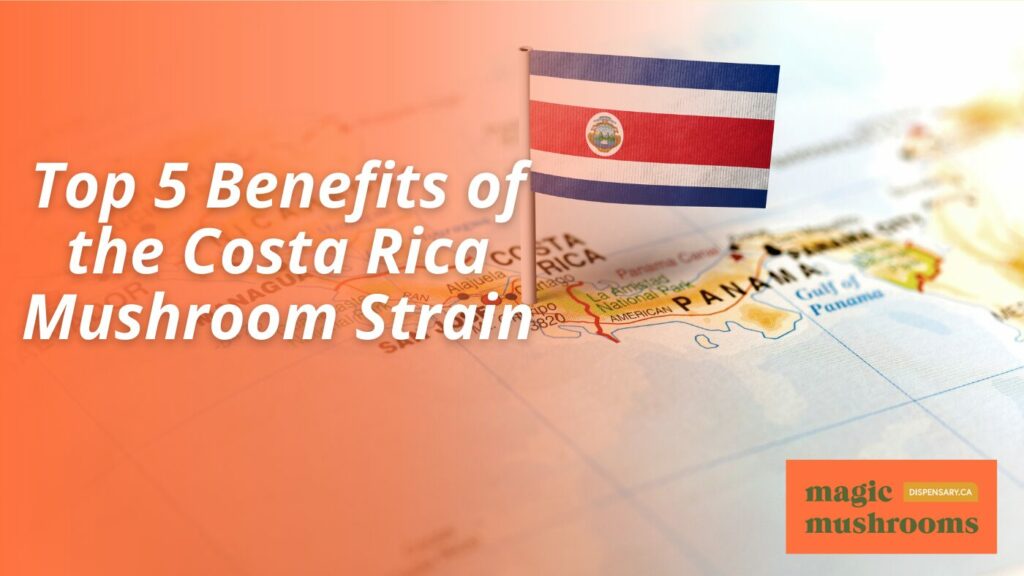
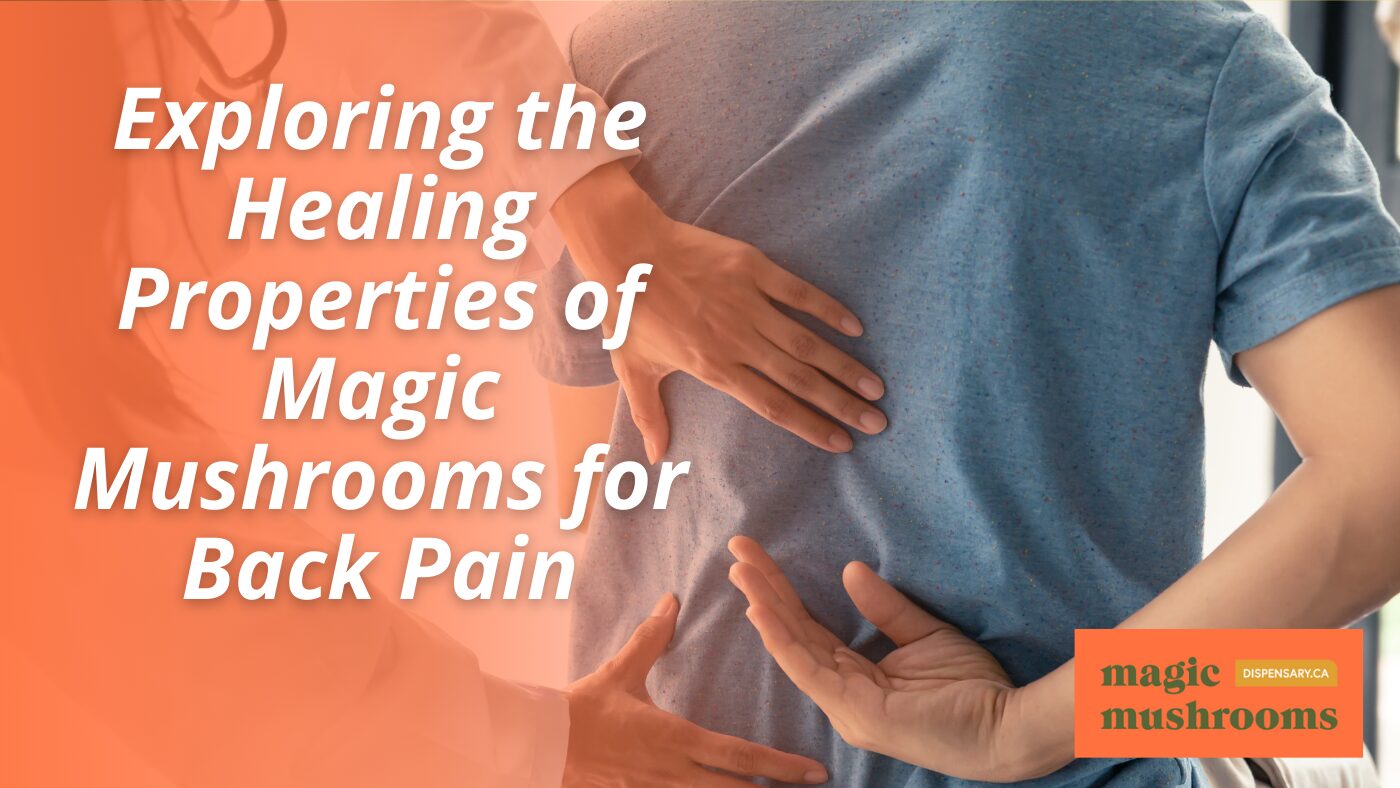
Psychedelic mushrooms, recognized for their mind-altering properties, are increasingly being studied for their possible advantages to health. Traditionally employed across different cultures, their efficacy in managing pain is undergoing renewed scrutiny by scientific researchers today. This piece delves into the capacity of these mushrooms to alleviate back pain, looking into both historical uses and current scientific findings.
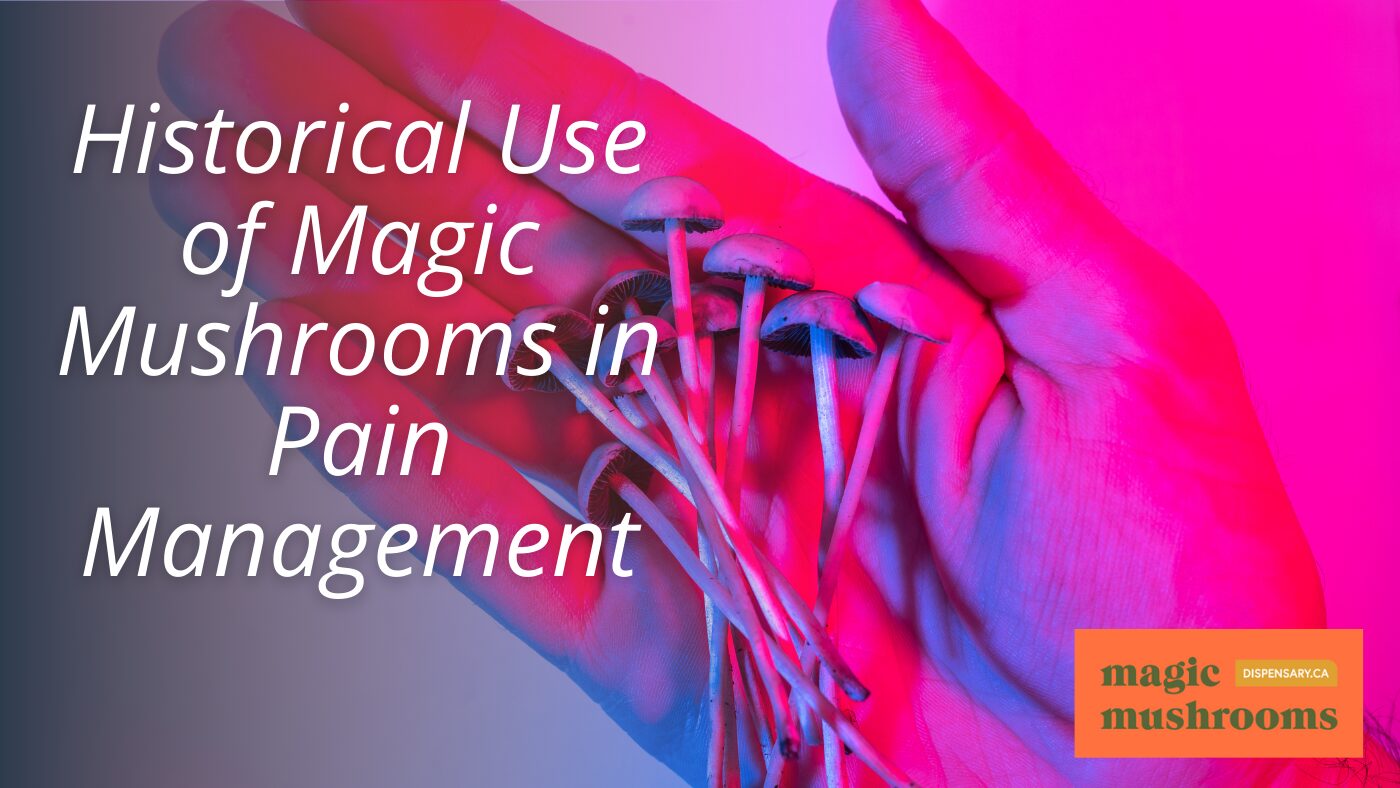
Magic mushrooms have been used for thousands of years in various cultures. Ancient civilizations, such as the Aztecs, incorporated these fungi into their rituals and healing practices. They believed these mushrooms had divine properties and could connect them to the spiritual world. These ancient remedies were not just for spiritual purposes but also for physical ailments, including pain relief.
In traditional medicine, magic mushrooms were often used to treat pain. Healers would prepare concoctions or teas from the mushrooms to alleviate various types of pain. This practice was common in many indigenous cultures, where natural remedies were the primary source of medicine. The use of magic mushrooms for pain relief was based on the belief that they could alter the perception of pain, making it more manageable.
In recent years, there has been a resurgence of interest in the medicinal properties of magic mushrooms. Researchers are now exploring how these ancient practices can be integrated into modern medicine. Studies have shown that psilocybin, the active compound in magic mushrooms, can have significant effects on pain perception and management. This modern rediscovery paves the way for new treatments combining ancient wisdom with contemporary science.
The science behind magic mushroom therapy combines ancient remedies with modern practises for mental health treatment.
Psilocybin, the active compound in magic mushrooms, primarily affects the brain by interacting with serotonin receptors. This interaction can lead to altered states of consciousness and perception. Research suggests that psilocybin can help create new emotional and information pathways in the brain, which may benefit pain management.
One of the most promising aspects of psilocybin is its ability to improve neuroplasticity. Neuroplasticity is the brain’s ability to reorganize itself by forming new neural connections. This can be particularly useful in treating chronic pain, as it may help the brain to develop new ways of processing pain signals.
Another area of interest is psilocybin’s impact on pain perception. It is believed that psilocybin can alter how the brain and spinal cord process pain signals, potentially reducing pain sensation. This could make it a valuable alternative to traditional painkillers, which often come with a range of side effects.
Researchers are exploring the potential of psilocybin, a compound found in magic mushrooms, to alleviate chronic back pain. A notable example is the University of California Health Psilocybin Clinical Trials for 2024. This double-blind, placebo-controlled pilot study aims to determine if psilocybin can be safely administered to individuals with chronic pain conditions. The study will involve two groups: one receiving psilocybin and the other a placebo, allowing for a comparative analysis of outcomes.
Initial results from various studies suggest that psilocybin may offer significant relief for chronic back pain sufferers. For instance, a study at the University of Virginia examines whether psilocybin can help patients by targeting the emotional aspects of pain, which are controlled by the central nervous system. Early data indicates that participants experience reduced pain levels and improved emotional well-being.
Future research will focus on refining dosage protocols and understanding the long-term effects of psilocybin on chronic back pain. Researchers are also interested in exploring the potential benefits of combining psilocybin with other therapies to enhance pain relief and improve patients’ overall quality of life.
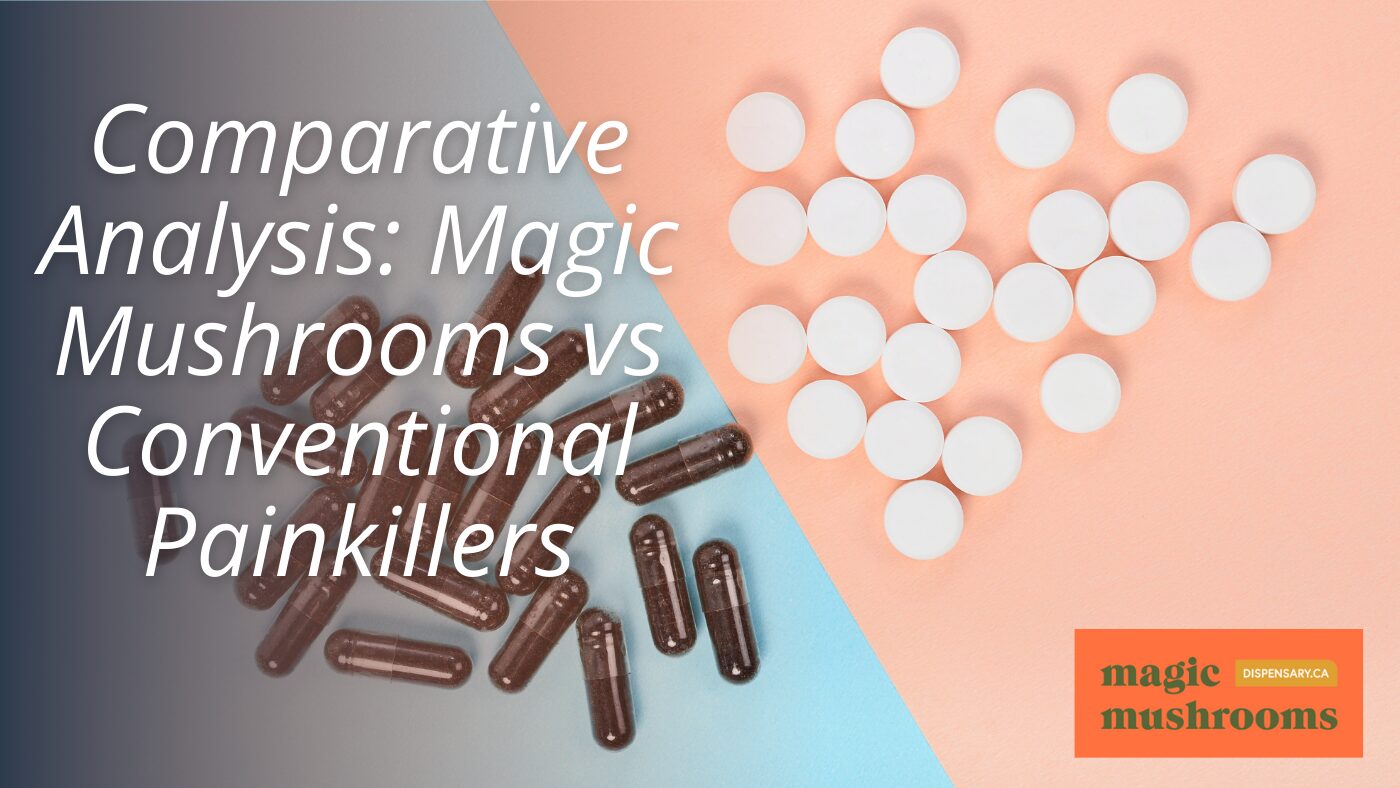
Magic mushrooms, particularly those containing psilocybin, have shown promise in managing chronic pain. Preliminary studies suggest that psilocybin can help reduce pain perception and improve quality of life. In contrast, conventional painkillers like opioids are effective but come with a high risk of addiction and other side effects.
Conventional painkillers often lead to side effects such as nausea, dizziness, and dependency. On the other hand, magic mushrooms may cause temporary psychological effects like hallucinations but are generally considered safer in the long term. The neuroplasticity benefits of psilocybin also offer the potential for lasting positive changes in brain function.
Many patients have reported significant relief from chronic pain conditions, including back pain, after using magic mushrooms. These testimonials highlight the potential for psilocybin to offer a more holistic approach to pain management compared to traditional painkillers.
The growing interest in psilocybin therapy is evident in ongoing clinical trials, such as the UCSF lower back pain clinical trials for 2024, which aim to evaluate the effectiveness of psilocybin in helping patients cope with chronic low back pain more effectively.
Chronic back pain is a widespread issue, especially as people age. Preliminary evidence suggests that psilocybin, the active compound in magic mushrooms, may help alleviate this pain. Researchers believe that psilocybin can alter brain pathways, potentially addressing the root cause of chronic pain rather than just the symptoms.
Fibromyalgia is a condition characterized by widespread musculoskeletal pain, fatigue, and tenderness in localized areas. Some studies indicate that psilocybin might offer relief by interacting with serotonin receptors in the brain. This interaction could help reduce pain perception and improve overall functionality and quality of life.
Cluster headaches are excruciating and often resistant to conventional treatments. Anecdotal evidence and some clinical trials suggest that psilocybin could effectively reduce the frequency and severity of these headaches. Patients have reported significant improvements, making psilocybin a promising alternative for those who do not respond to traditional therapies.
The therapeutic potential of psychedelics for chronic pain warrants expanded research. These substances may not only relieve pain but also improve functionality and quality of life in chronic pain patients.
Psilocybin has shown promise in reducing anxiety and depression, which are often linked to chronic pain. Preliminary evidence suggests that psychedelics can improve mood, providing relief from the mental burden of pain. This improvement in mental health can lead to a better overall quality of life.
Studies have indicated that psilocybin can lead to substantial and enduring increases in quality of life. By altering and reshaping pathways in the brain, psilocybin may help treat the underlying causes of chronic pain, not just the symptoms. This holistic approach can result in increased functionality and reduced disability.
Psilocybin’s impact on neuroplasticity can foster emotional resilience. This means that individuals may become better equipped to handle the emotional challenges associated with chronic pain. The ability to adapt and recover from stress is crucial for long-term pain management.
The new research suggests that psilocybin may well act via neuroplastic effects produced by psychedelics, helping to effectively rewire certain brain circuits.

The legal landscape for magic mushrooms varies widely across the globe. In some countries, psilocybin is classified as a controlled substance, making its use illegal outside of approved clinical trials. Health Canada has strict requirements and safeguards to protect patients and participants in clinical trials. However, these regulations can create barriers, pushing some individuals toward the black market.
The ethical considerations surrounding the use of magic mushrooms in medicine are complex. On one hand, there is great empathy for individuals diagnosed with mental health and substance use disorders. On the other hand, the potential for misuse and the need for informed consent are significant concerns. Balancing these factors is crucial for ethical clinical practice.
Different countries have varying approaches to the regulation of psilocybin. For instance, some nations have decriminalized its use, while others maintain strict prohibitions. This global disparity highlights the need for a unified approach to the regulation and ethical use of magic mushrooms in medicine.
The journey towards integrating magic mushrooms into mainstream medicine is fraught with legal and ethical challenges, but the potential benefits for patients make it a path worth exploring.
Integrative medicine combines conventional and alternative therapies to address the whole person, not just the symptoms. Magic mushrooms, particularly those containing psilocybin, are gaining attention in this field for their potential to manage pain and improve mental health.
Holistic pain management involves treating the mind, body, and spirit. Magic mushrooms can play a role in this by offering not only physical relief but also emotional and psychological benefits. Psilocybin has been shown to reduce anxiety and depression, which are often linked to chronic pain conditions.
Combining psilocybin with other therapies, such as physical therapy and counseling, can enhance overall treatment outcomes. This integrative approach can lead to more sustainable pain relief and improved quality of life. For instance, patients undergoing physical therapy might find that psilocybin helps them engage more fully in their exercises.
Patient-centered care models focus on tailoring treatments to individual needs. In this context, psilocybin can be a valuable tool. By addressing both the physical and emotional aspects of pain, it supports a more comprehensive treatment plan. This approach aligns with the principles of integrative medicine, which emphasize personalized care and the importance of treating the whole person.
The integration of magic mushrooms into pain management strategies represents a promising frontier in healthcare, offering a blend of ancient wisdom and modern science.
Despite growing interest, the scientific community remains divided on the therapeutic potential of psilocybin. Some researchers argue that the current evidence is insufficient and that more rigorous studies are needed. This skepticism is partly due to the historical stigma associated with psychedelic substances, which has led to limited funding and support for research.
One major challenge in psilocybin research is the placebo effect. Because psilocybin can cause profound changes in perception, it is challenging to create a trustworthy placebo. This makes it hard to determine whether the benefits observed in studies are due to the drug itself or the participants’ expectations.
The path to clinical adoption of psilocybin therapy is fraught with obstacles. Regulatory hurdles, ethical concerns, and the need for specialized therapist training all contribute to the slow progress. Additionally, the legal status of psilocybin in many countries complicates efforts to conduct large-scale clinical trials.
Exploring the mystical world of psilocybin therapy reveals both its therapeutic potential and the significant challenges that must be overcome for it to become a mainstream treatment option.
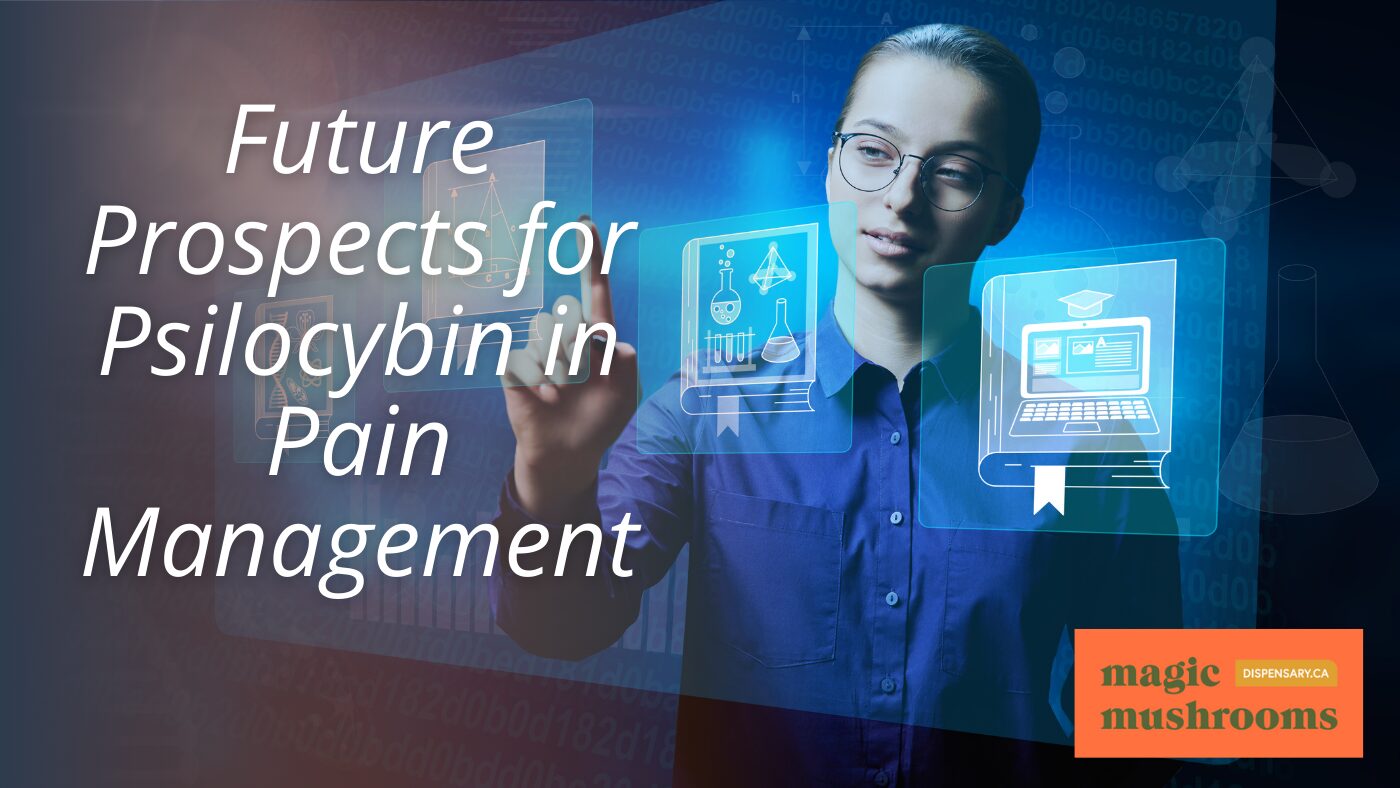
The future of psilocybin in pain management looks promising, especially with the development of innovative treatment protocols. Researchers are exploring various dosing strategies and administration methods to maximize therapeutic benefits while minimizing potential risks. Preliminary evidence suggests that psilocybin could alter and reshape pathways in the brain, potentially addressing the root cause of chronic pain rather than just alleviating symptoms.
Psilocybin’s potential extends beyond back pain to other chronic pain conditions. Studies are being conducted to evaluate its efficacy in treating conditions like fibromyalgia and cluster headaches. The interdisciplinary team at PHRI is planning the first pilot study on the effect of psilocybin on phantom limb pain, which could pave the way for broader applications in pain management.
Numerous studies are underway to understand further the benefits and limitations of psilocybin in pain management. These studies aim to provide more robust data on its efficacy and safety profiles. Future research directions include brain imaging studies to observe the neurochemical changes induced by psilocybin and its long-term impact on pain perception.
While more research is needed to fully understand the medical benefits of psilocybin for chronic pain, the current findings offer hope for new therapeutic avenues. The road from funding more trials to clinical adoption is still long, but the potential benefits make it a journey worth pursuing.
The future of psilocybin in pain management looks promising. Researchers are exploring its potential to offer relief where traditional methods fall short. Are you curious to learn more about the benefits of psilocybin? Visit our website for detailed insights and to explore our range of products.
In conclusion, the exploration of magic mushrooms as a treatment for back pain is a promising field. The evidence suggests that psilocybin, the active ingredient in these mushrooms, can offer significant relief from chronic pain. This is particularly important as traditional pain management methods often come with severe side effects or risk of addiction. As research continues, it is crucial to approach this potential treatment with an open mind while ensuring rigorous scientific standards. The future of pain management could very well include these natural compounds, offering hope to many who suffer from chronic back pain.
Magic mushrooms are a type of fungi that contain the psychoactive compound psilocybin, which can cause hallucinations and changes in perception.
Magic mushrooms may help with back pain by affecting the brain’s pain perception pathways and reducing inflammation.
While some studies show promise, more research is needed to fully understand the safety and effectiveness of magic mushrooms for pain management.
Magic mushrooms are not suitable for everyone and should only be used under the guidance of a healthcare professional.
Yes, magic mushrooms can cause side effects such as nausea, dizziness, and hallucinations. Long-term effects are still being studied.
Magic mushrooms can be eaten raw, cooked, or brewed into tea. They can also be taken in capsule form.
The legality of magic mushrooms varies by country and region. In some places, they are illegal, while in others, they may be allowed for medical or research purposes.
Consult with a healthcare provider to discuss the potential benefits and risks and to see if it is a suitable option for you.